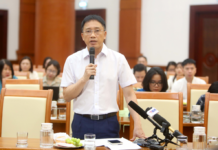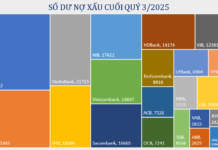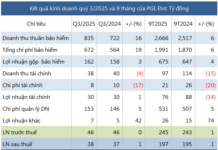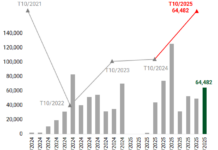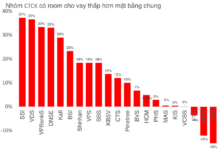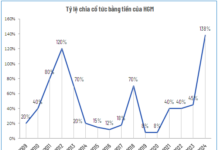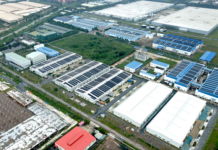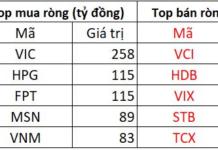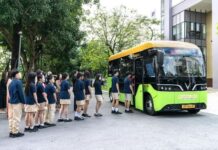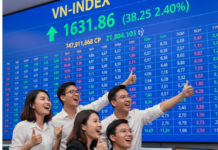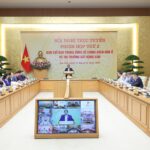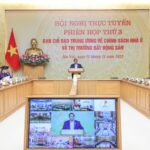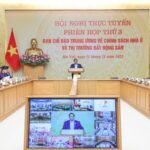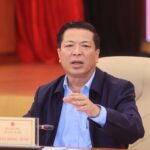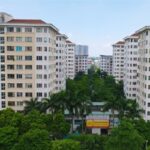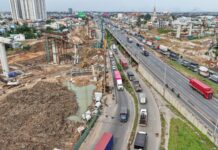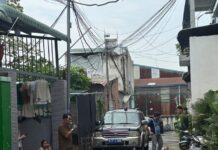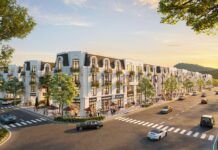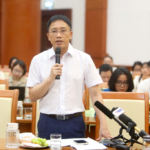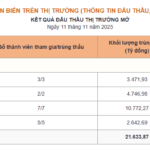Residents Race Against Time to Complete Procedures
According to reports, several housing projects, such as the Thuong Thanh Social Housing Area (Rice City Long Châu) and the social housing project in Dong Anh commune, developed by the 319 Corporation under the Ministry of Defense, only accept applications for just over a month.
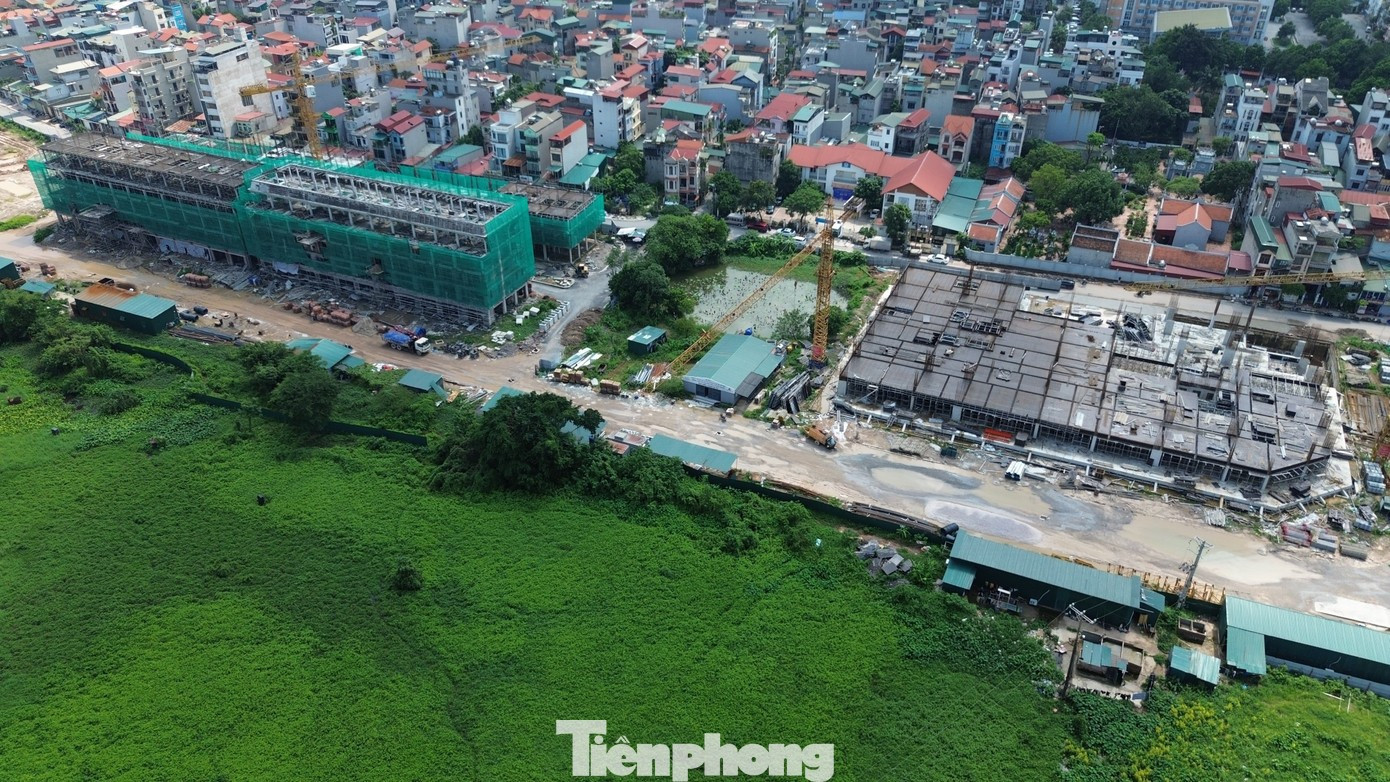
Residents report difficulties in completing documents for social housing purchases (pictured: a social housing project under construction in Long Biên, Hanoi).
Meanwhile, residents must navigate time-consuming administrative procedures to finalize their applications. For instance, obtaining an income verification certificate from the administrative center typically takes 2 working days, while confirming housing eligibility can extend up to 10 working days.
Thus, these two documents alone consume nearly the entire application period. Additionally, residents must prepare other documents and often face unexpected hurdles during the process, leaving many in a frantic race to meet submission deadlines.
Residents urge authorities and developers to extend the application period for purchasing or renting social housing to at least 2 months, ensuring more time for accurate and complete documentation.
This extension would also enhance transparency and fairness in the allocation of social housing funds, a critical state welfare policy.
Income Verification Hurdles for Freelancers
In Hanoi, residents, particularly freelancers, face significant challenges in completing social housing applications, primarily due to income and housing eligibility verification. Many report spending weeks without finalizing their paperwork.
Ms. Nguyen Thi Trang, a freelancer from Dong Anh commune, Hanoi, shared her struggle with income verification while applying for social housing.
Under Decree No. 261/2025/NĐ-CP (effective from October 10, 2025), individuals without employment contracts must obtain income verification from the local police station in their place of residence or temporary stay.
“However, the local police stated they lack the necessary forms and specific guidelines for this process. With strict submission deadlines, delays could mean losing the opportunity to purchase a home,” Ms. Trang explained.
Many freelancers face similar challenges, as verifying “no existing housing” or “low income” has become a major obstacle, causing weeks of paperwork struggles.
A police officer from a Hanoi ward confirmed, “We’ve only received preliminary information about the new regulations and lack detailed instructions, so we cannot yet verify residents’ incomes.”

Lawyer Hoang Tuan Vu.
Lawyer Hoang Tuan Vu from Tue Anh Law Firm, Hanoi Bar Association, noted that Decree 216/2025/NĐ-CP’s income verification requirements for freelancers applying for social housing are impractical.
Mr. Vu explained that personal income varies widely and is difficult to verify, often not reflected in administrative documents or fixed salary slips. Local authorities, tasked with income verification, lack the authority, tools, or data to confirm residents’ actual earnings.
“How can the police determine someone’s income for verification? Relying on subjective assessments lacks objectivity and imposes administrative burdens on officials,” Mr. Vu emphasized.
He proposed that authorities amend the regulations to allow residents to self-declare their income using a standardized form, taking legal responsibility for the accuracy of their information. This approach would streamline the process and ensure accountability.
Prime Minister: Ensuring Citizens Don’t Face Delays or Extra Costs When Accessing Social Housing
The Prime Minister emphasized three critical objectives in social housing development: streamlining procedures to eliminate bureaucratic hurdles; ensuring citizens can access social housing swiftly, affordably, and conveniently, without unnecessary delays, complications, or additional costs, and with protection against fraud; and fostering a safe, healthy, and sustainable real estate market that stabilizes the macroeconomy, controls inflation, drives growth, and maintains the economy’s key balances for rapid and sustainable development.
Prime Minister Demands Ministry of Construction Clarify Causes of Delayed Social Housing Projects
Regarding the progress of social housing projects, the Prime Minister has requested the Ministry of Construction to provide a detailed report on the current delays in investment procedures and construction processes. The report should clarify the sequence of steps, identify the causes of bottlenecks, and address any obstacles hindering the timely implementation of these projects.
Accelerating Public Investment Disbursement in the Final Two Months of the Year: Ministry of Construction’s Urgent Call to Action
With a public investment capital disbursement rate of only 51% after 10 months, Minister of Construction Tran Hong Minh has urged project investors to allocate professional personnel to address documentation bottlenecks, ensure efficient project settlement, and accelerate public investment capital disbursement.






